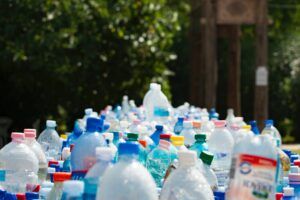Upcycling in this context means transforming them into new materials or products of better quality or for better environmental value, ensuring that micro-plastics are avoided. This will allow the sustainable recycling or biological degradation in accordance with existing and novel technologies, standards and certification schemes.
Challenge
The challenge is to develop technologies to deal with the upcycling of plastics for food and drinks packaging.
Scope
Proposals will address as many as possible of the following aspects:
- Expand the potential of current technologies and materials for the manufacturing and design of bio-plastics that are recyclable and/or bio-degradable;
- Exploit known or develop new biotechnologies, based on enzymes or enzyme combinations and microorganisms, for improved recycling or biodegradation of plastics;
- Develop novel standards and certification schemes applicable to packaging materials made from recyclable and biodegradable bio-plastics;
- Include Social Sciences and Humanities (SSH) elements and gender aspects to improve consumer attitude and behaviour with respect to purchasing and recycling food and drink packaging;
- Take a systemic approach and involve cooperation among actors in the supply chain, from producer to final consumer, and from research to policy makers.
The Commission considers that proposals requesting a contribution from the EU between EUR 6 and 8 million would allow this specific challenge to be addressed appropriately. Nonetheless, this does not preclude submission and selection of proposals requesting other amounts.
Expected impact
- 60% food and drink packaging is upcycled by 2030;
- A viable roadmap to prove that by 2030 60% of the plastics still to be used for packaging of foods and drinks with short-shelf life will be produced from renewable sources.
- Contribute to the increase in new and upgraded waste recycling facilities designed to facilitate recycling via biotechnological or biochemical methods.
- Increased awareness among European citizens of products and materials upcycling capacity.
- Novel standards and certification schemes to be applied together with market pull measures such as public procurement and tax exemptions.
Projects selected under this topic as well as projects selected under other topics in H2020 supporting the Plastics Strategy are strongly encouraged to participate in joint activities as appropriate.
Deadline
12 December 2019 at 17:00 Brussels time







Leave a Reply